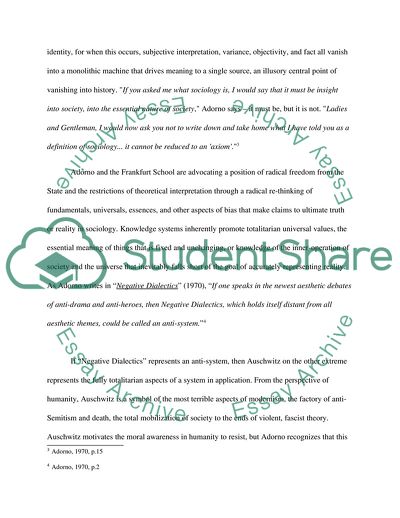Cite this document
(What Does the Interest that Auschwitz Should Never Happen Again Mean f Assignment, n.d.)
What Does the Interest that Auschwitz Should Never Happen Again Mean f Assignment. https://studentshare.org/philosophy/1751574-sociology-philosophy
What Does the Interest that Auschwitz Should Never Happen Again Mean f Assignment. https://studentshare.org/philosophy/1751574-sociology-philosophy
(What Does the Interest That Auschwitz Should Never Happen Again Mean F Assignment)
What Does the Interest That Auschwitz Should Never Happen Again Mean F Assignment. https://studentshare.org/philosophy/1751574-sociology-philosophy.
What Does the Interest That Auschwitz Should Never Happen Again Mean F Assignment. https://studentshare.org/philosophy/1751574-sociology-philosophy.
“What Does the Interest That Auschwitz Should Never Happen Again Mean F Assignment”. https://studentshare.org/philosophy/1751574-sociology-philosophy.


